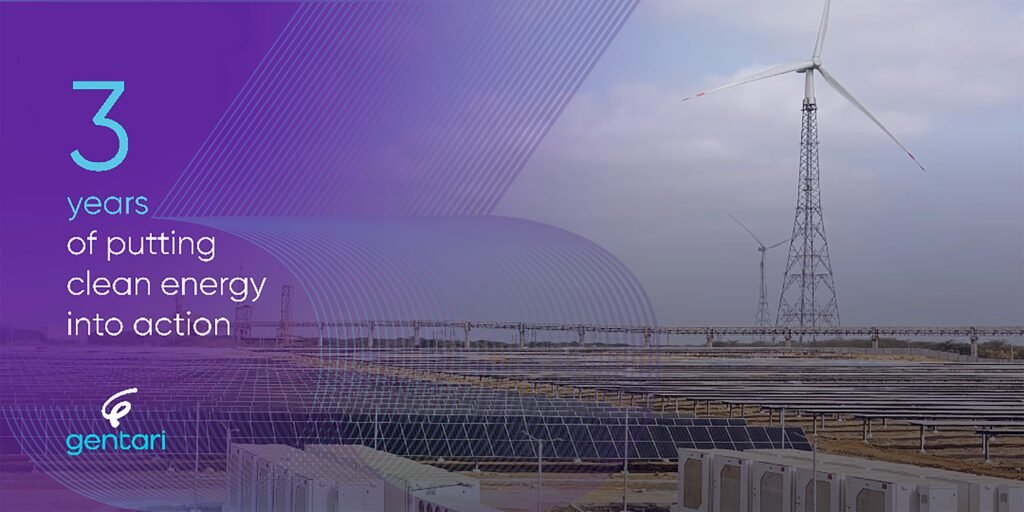From the start, India has been central to Gentari’s journey. In the three years since our inception, we have not only entered the market but have progressively established ourselves as a key player in its clean energy landscape. We have stood alongside industries seeking reliable power, worked with like-minded partners and policymakers to open pathways for green hydrogen, and supported the development of charging infrastructure to enable adoption of cleaner mobility in the country. Across each of these efforts, one theme has guided us: the power of coming together, through integrated solutions, unified teams or through building strong partnerships, to keep evolving with the needs of a market transforming at extraordinary speed.
Our progress rests on three pillars. The first, projects that matter – not only in measures of megawatts, molecules or charging points, but in the competitiveness and resilience they unlock for customers and communities. A clear example is our on-site plant in Sewagram, Gujarat, where Gentari has just delivered India’s first on-site hybrid round-the-clock renewables project, a 7.5 MW system combining solar, wind and battery storage to supply uninterrupted clean power. In a country where demand for reliable electricity is rising, Sewagram matters because it shows how we evolve with the needs of industry and customers, proving that meaningful progress is driven by innovation, and not size alone.

Second, capabilities that last – driven by an India team whose ingenuity and agility are shaping Gentari’s global playbooks, from matured hydrogen opportunities to scaling mobility solutions. Our green hydrogen initiatives in Karnataka and Tamil Nadu, together with our collaboration with AM Green in Andhra Pradesh, are helping to advance not only India’s hydrogen ambitions domestically but also its role in accelerating green hydrogen adoption globally. By pairing execution excellence with future-focused partnerships, the team is ensuring Gentari remains ahead of the curve in shaping the clean energy transition.
And third, impact that is inclusive – creating jobs, supporting communities and strengthening local ecosystems so that the spin-off benefits of clean energy is extended more widely. By generating employment, nurturing communities and strengthening rural ecosystems around our projects, we are working to ensure the energy transition is both inclusive and equitable.
A perfect example is Project Jai in Rajasthan, India’s first large-scale, ISTS-connected, open access solar project. At Project Jai, together with the local communities, we are planting and maintaining 10,000 trees on previously arid land, making this a collective journey of care and stewardship. To conserve scarce water resources, robotic cleaning systems have been deployed for the solar panels, eliminating the need for water-intensive washing. Through these measures, Project Jai stands not only as a source of clean power but also one that is inclusive of local communities and benefits their daily lives.
Global to local
While these pillars have provided a strong foundation, what has truly defined our journey is allowing India to shape the way we work locally. For us, localisation goes beyond adapting projects to a market – it is about building an organisation that listens, learns and continually evolves with its environment. India’s vast scale drives us to design for resilience. Its diversity compels us to innovate with inclusion in mind. Its pace calls for agility and discipline in equal measure. In meeting these realities, Gentari has not only grown rapidly here; we have also developed models that now guide our thinking globally. This openness to be shaped by the markets we serve in is not a strategy, but a core Gentari value.
Gentari Go illustrates this value in action. First launched in Malaysia, the platform was localised for India to navigate one of the world’s most fragmented EV ecosystems. With Gentari Go’s launch in India in August 2024, local users now have access to more than 3,000 chargers underpinned by collaborations with partners such as Shell, Statiq, ChargeZone and Numocity. This rollout demonstrates how India’s scale, diversity and pace have shaped everything from network partnerships to user experience. What began abroad has been reimagined locally and in turn, the learnings from India are now helping to inform our wider green mobility strategy in the region.
The promise of the future
Anniversaries are not milestones to pause at; they are reminders to accelerate. Our commitments for the future are clear: to scale faster, because the transition cannot wait; to forge deeper partnerships, because ecosystems, not individual companies, define success and systemic resilience; and to nurture talent, because the next generation must inherit not only clean energy, but also the skills to sustain it.
(Source :www.gentari.in)

